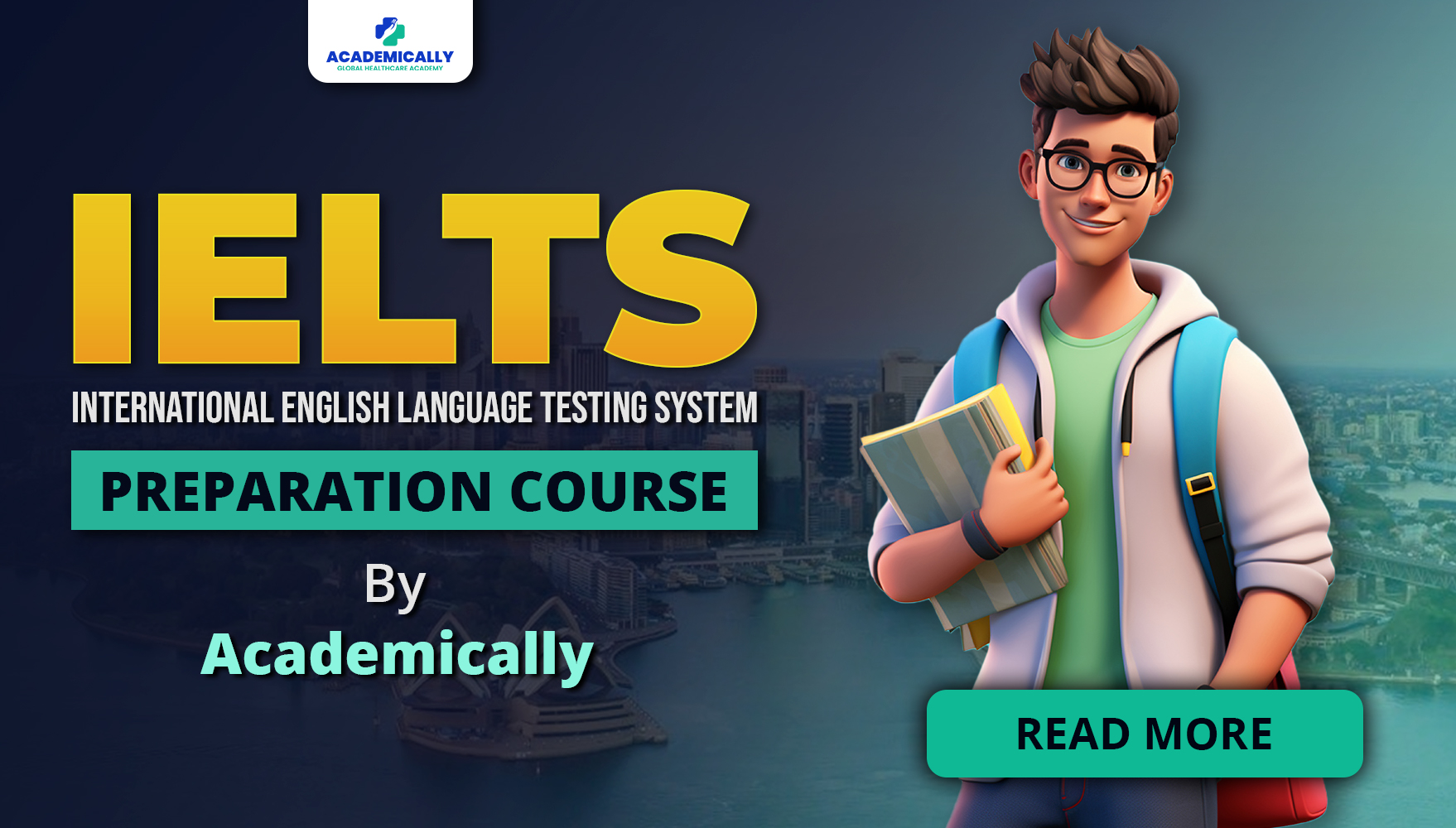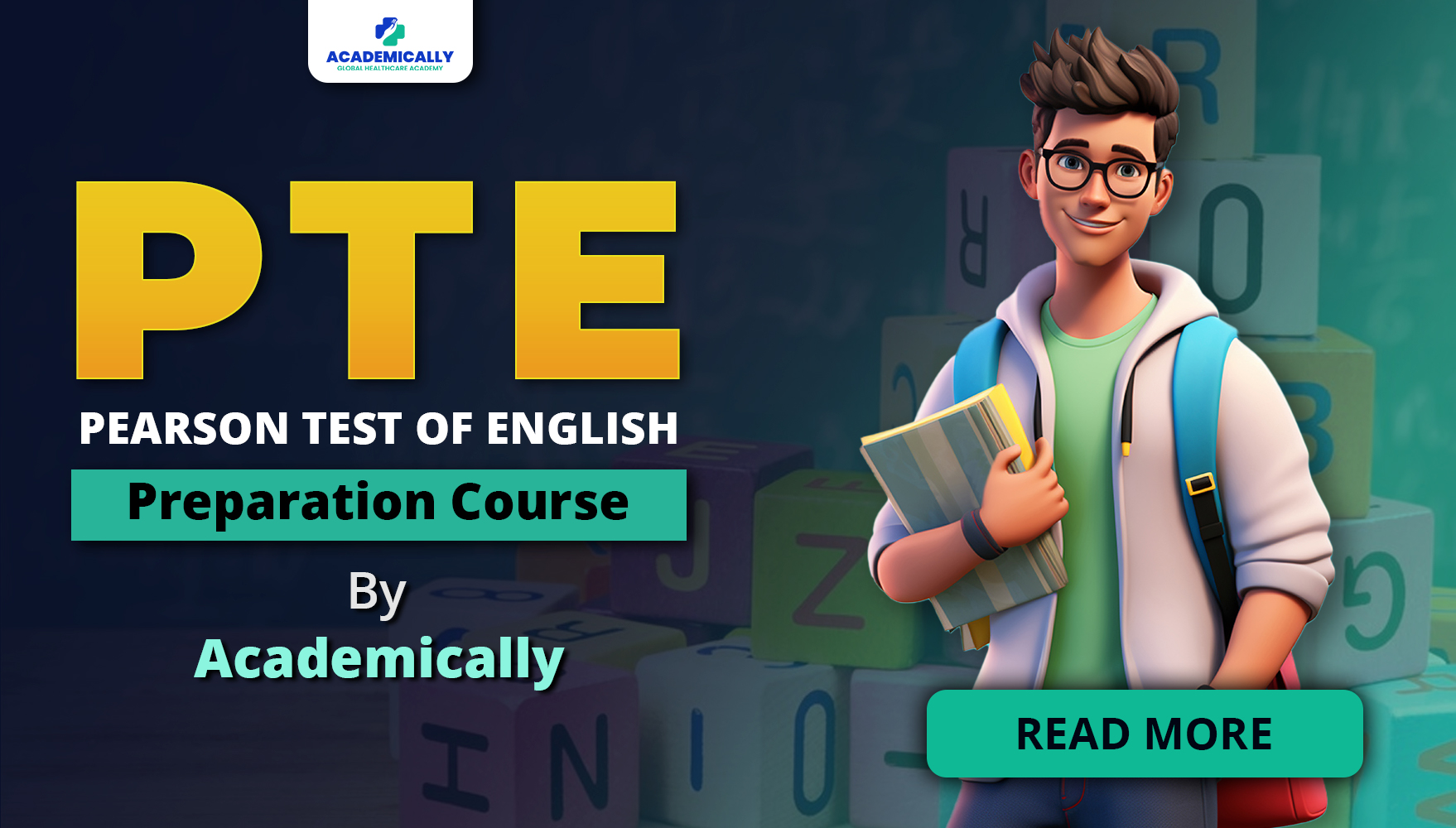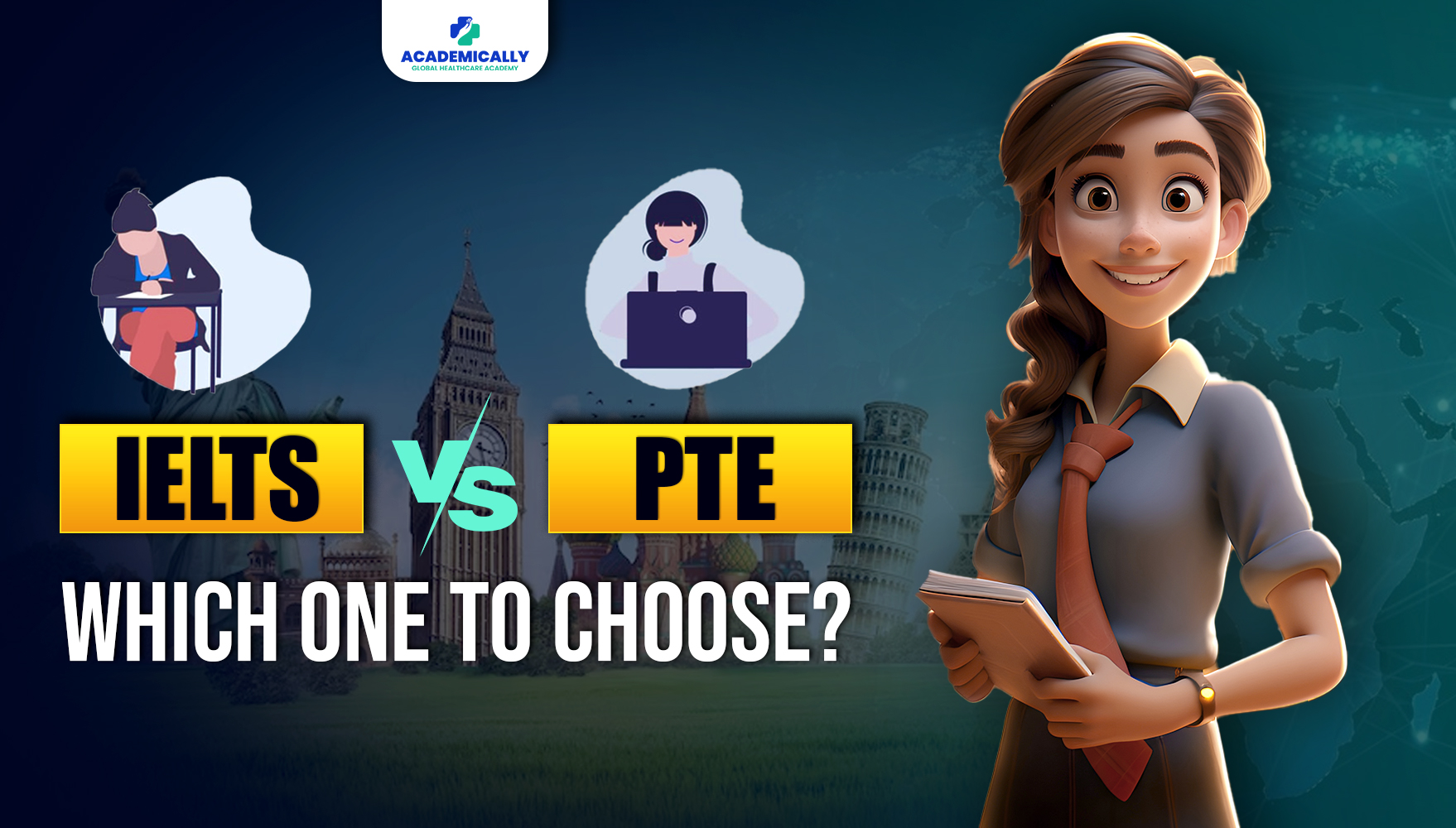Introduction
If you are planning to study or work in an English-speaking country, you could have likely come across two popular English proficiency tests: IELTS (International English Language Testing System) and PTE (Pearson Test of English).
Both tests are widely accepted by educational institutions and immigration authorities around the world, and they serve as benchmarks for assessing your English language skills.
But when it comes to choosing between the two, which one is better for you? In this blog, we will compare IELTS and PTE across various aspects to help you make an informed decision.

IELTS VS PTE: 7 Key Differences
Here are the most prominent points of differences between the two English language tests for your better understanding.
1. Test Format
IELTS
- IELTS offers two test formats: Academic and General Training.
- The Academic format is typically required for academic purposes, while the General Training format is used for immigration and general communication purposes.
- IELTS consists of four sections: Listening, Reading, Writing, and Speaking.
PTE
- PTE Academic is a computer-based test with a single format.
- It assesses your English language skills through three main sections: Speaking and Writing, Reading, and Listening.
2. Test Scoring
IELTS
- IELTS scoring is based on a 9-band scale.
- Scores are reported in half-band increments (e.g., 6.5, 7.0, 7.5).
- The overall score is the average of the four section scores.
PTE
- PTE Academic uses a scoring scale from 10 to 90.
- Scores are reported in one-point increments.
- There is no overall PTE score. Instead, you receive separate scores for each of the three sections.
3. Test Duration
IELTS
- The total test duration is approximately 2 hours and 45 minutes.
- The Speaking test is conducted face-to-face.
PTE
- PTE Academic takes around 3 hours to complete.
- The Speaking and Writing sections are computer-based and conducted on the same day as the other sections.
4. Test Availability and Results
IELTS
- IELTS is available at test centres worldwide.
- Test results are typically available within 13 days.
PTE
- PTE Academic is available at test centres in over 50 countries.
- Test results are typically available within 5 business days.
5. Test Content
IELTS
- IELTS includes a range of accents in the Listening test.
- The Speaking test is conducted by a human examiner.
- The Reading and Writing sections require handwritten responses.
PTE
- PTE uses standard accents in the Listening section.
- The Speaking and Writing sections are computer-assessed, eliminating human bias.
- Responses are typed on a computer for Reading and Writing.
6. Re-taking the Test
IELTS
You can retake IELTS as many times as you want, but you must wait for a minimum of 2-3 days between test dates.
PTE
You can also retake PTE as many times as needed, with no specific waiting period.
7. Cost of the Exams
IELTS
The IELTS Exam costs approximately AUD 198, i.e. INR 16,500.
PTE
The PTE Exam costs approximately AUD 185, i.e. INR 15,300.

Choosing the Right Test
Choosing between IELTS and PTE depends on your individual circumstances, preferences, and goals. Here's a step-by-step guide to help you make the right choice:
Determine Your Purpose
Identify why you need to take an English language proficiency test. Is it for university admissions, immigration purposes, professional registration, or personal development?
Research-Specific Requirements
Check the requirements of the universities, colleges, immigration authorities, or organisations you plan to apply to. Some institutions may have a preference for one test over the other, so it's crucial to align with their requirements.
Test Format Preferences
Consider your test-taking style and comfort with different formats. IELTS includes face-to-face speaking interviews and a paper-and-pencil format, while PTE is entirely computer-based with automated scoring.
Result Timelines
Determine your application timeline. If you need your results quickly, PTE typically provides faster results (within five business days) compared to IELTS.
Location and Test Availability
Check the availability of test centres for both IELTS and PTE in your region. Some areas may have more test centres for one test than the other.
Personal Comfort
Reflect on your personal comfort level with test formats. Some individuals may prefer the traditional format of IELTS, while others might find the computer-based nature of PTE more suitable.
Consultation
Seek advice from peers, mentors, or educational consultants who have experience with both tests. They may offer valuable insights based on your specific goals.
Practice and Mock Tests
Take practice tests for both IELTS and PTE to assess your performance and comfort level with each test format. This can help you make an informed decision.
Final Decision
Based on your research, specific requirements, preferences, and practice performance, decide whether IELTS or PTE is the better fit for your goals.
Conclusion
Both IELTS and PTE are respected tests that assess English language proficiency effectively. Your choice should be based on your individual circumstances and preferences.
Regardless of which test you opt for, thorough preparation and practice will be your key to success. Good luck with your language proficiency journey!
Fill up this form for a free one on one counselling session.


